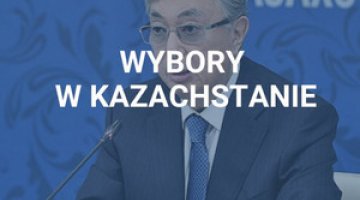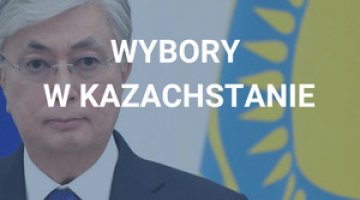Kazakhstan is taking a hard line
On 20 November, the Prosecutor General’s Office of Kazakhstan lodged a motion in court seeking a ban on the organisations Alga!, Halyk Maidany and a number of mass media, including the TV stations K+ and Stan.tv, the newspapers Respublika and Vzglyad and dozens of websites linked to them on charges of “propagating extremism”.The public prosecutor’s motion concerns the operation of the most active and largest political opposition group, who have been held responsible by the government for the incidents in Zhanaozen last year (according to the official version, fourteen people were killed in the bloody clashes between striking workers and internal security forces). This opposition group is most likely linked to Mukhtar Ablyazov - recognised as the main sponsor and personification of opposition to Nursultan Nazarbayev. On 24 November, the court suspended the operation of most of the aforementioned entities until the end of the proceedings. In turn, the Security Council of Kazakhstan held a meeting chaired by the president on 14 November in Astana. The main topic of the meeting concerned actions aimed at combating and preventing terrorism and Islamic radicalism.
Commentary
- The recent moves taken by the government are the culmination of its active struggle against the opposition centred around Ablyazov, which has continued for almost a year now, and an attempt to pacify them before the upcoming first anniversary of the Zhanaozen riots (16 December). The government is determined to eliminate the circles linked to Ablyazov, while branding the opposition as extremist organisations will make it easier to respond to criticism from the West. It is very likely that the court will grant the public prosecutor’s motion, as a consequence of which the opposition’s influence on the Kazakh public – which has been minimal so far – will be reduced dramatically.
- In parallel with the actions aimed against the opposition, increasingly tough measures have been taken to combat terrorism and Islamic radicalism, visible signs of whose activity include the growing number of clashes with terrorists and the deepening Islamisation of society. The government is treating this as a top priority issue, evidence of which includes the reorganisation of law enforcement agencies it has instigated and social campaigns aimed at making the public more sensitive to threats linked to terrorism and radicalism. The gravity of this problem has been emphasised as it was made a subject of discussion during the meeting of the Security Council of Kazakhstan. The president has also given it high significance for example by appealing to young people not to wear hijab, which he said was an element which did not belong to the Kazakh culture.
- These actions stem from a feeling of insecurity which has been growing inside the government over the past year and, more broadly, from concern about Kazakhstan’s stability due to the lack of control over existing social processes. The Zhanaozen riots and the terrorist attacks have made it clear that there are groups of people in Kazakhstan who are dissatisfied with the country’s political and economic transformation and who have until now been disregarded by the state. The possibility that these groups could be used by foreign opposition in Kazakhstan’s internal games is seen by the president and his inner circle as a destabilising factor which potentially poses a threat to their position and complicates the process of succession to Nazarbayev.




